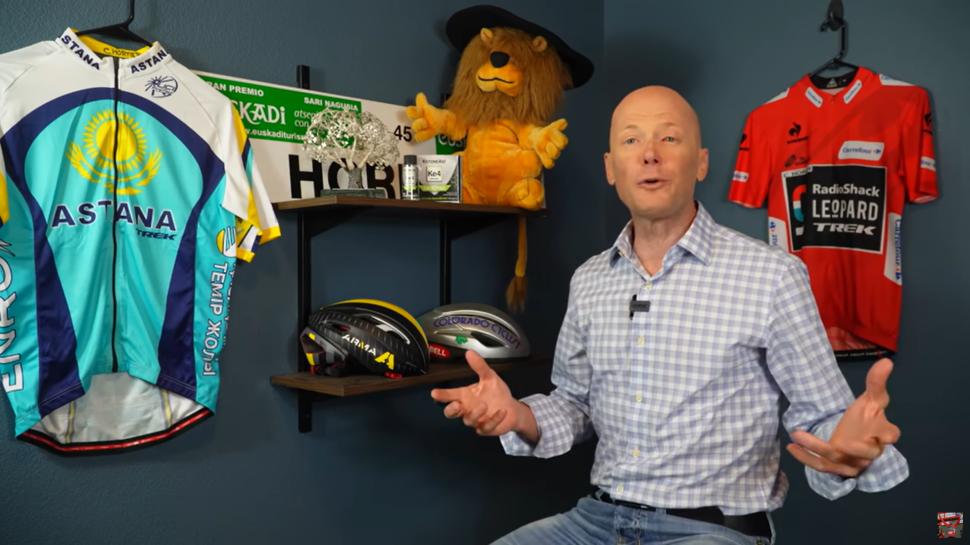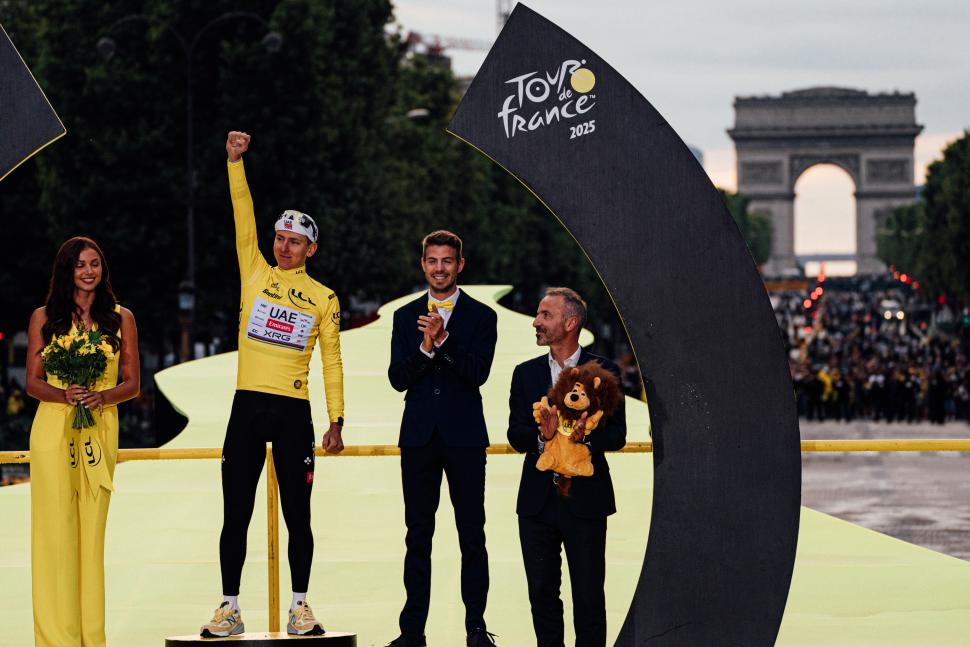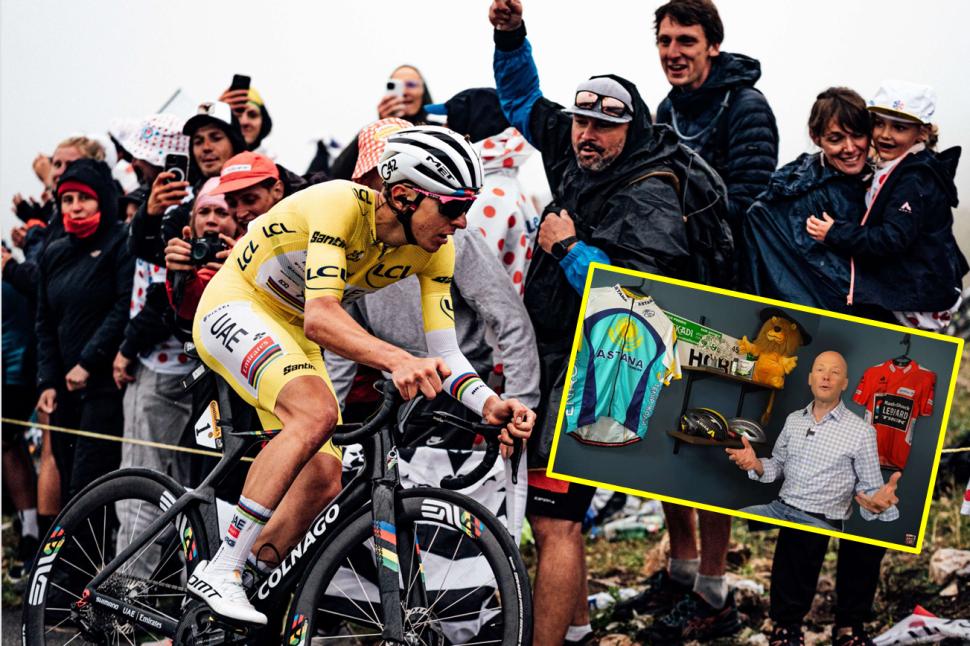We start today with the latest musings from the oldest Grand Tour winner in history, Chris Horner.
.jpg)
Speaking on his own YouTube channel, which is the style of the time, the 2013 Vuelta a España champion reflected on the news that Tadej Pogačar was battling a knee injury during the second half of this year’s Tour de France that apparently left the Slovenian close to abandoning the race whilst in the maillot jaune and caused him to ride more defensively in the latter stages of the race.
“You’ve got thousands upon thousands of pedal strokes, and something’s going to give.” Horner said.
“This is the more educated, adult experience now that Pogačar is coming into. If you can’t get rid of Jonas Vingegaard straight away, you don’t want to lose time to him either. So he raced wisely. He backed off the throttle.”
“It wasn’t a lack of motivation. What we were watching was a rider in pain, protecting his GC.”
So far, so normal. But as an ex-pro, Horner probably realised the key to get people to engage with his content was to share his own lived experience of racing through pain, although he maybe went a degree too far.

“Whenever your body goes into trauma, it always gains weight,” he explained. “I’ve been in hospital after crashes where I didn’t eat for a week and came out seven or eight pounds heavier.”
“Instead of losing weight as the race goes on, like you normally would, you’re gaining it. Every little bit counts when you’re climbing Ventoux or the Loze.”
“[At the 2009 Tour of California] I was taking Tramadol aggressively to get through every stage,” he said. “In those days it was legal and I was using it heavily.”
“But it was clear — I was gaining weight. I could see it day after day. I told my teammates: don’t wait for me on Mount Palomar. My form had just dropped away.”
As a reminder, tramadol is a strong painkiller that was for many years banned by cycling races for a suspected link between its use and crashes in the peloton. Former Endura Racing and Team Sky rider Jonathan Tiernan-Locke claimed that the drug was freely offered by British Cycling in and around the 2012 World Championships.
However, it took several years until it was added to the World Anti-Doping Agency’s banned list due to a lack of clear evidence of performance enhancement. This meant Nairo Quintana’s UCI-imposed disqualification from the Tour de France in 2022 did not result in an additional doping ban from WADA. WADA added tramadol to its banned substance list later that year.
> World Anti-Doping Agency set to ban painkiller tramadol (from 2022)
Horner also used his channel to remind viewers of his own injury struggles during that race that encouraged his more aggressive racing strategy.
“In 2013 when I was racing the Vuelta I had an issue behind my left knee. My
wife was taping it up for me. She literally came into the team bus and the team staff was going berserk bringing a woman up into the team bus at a grand tour while I’m racing for the race leaders jersey. They couldn’t believe I was bringing my wife in the bus.”
“I said I don’t have time to explain it to you. I need my wife to tape my knee up. I started racing crazy tactics at the finish of stage eight so I could try to win the stage because I didn’t think I was going to start nine.”
For a rider like Horner, whose Vuelta triumph arrived at the age of 41 against the likes of Vincenzo Nibali and Alejandro Valverde, his tramadol use is not a great thing to be admitting. During his career, Horner never stayed at a team for longer than three years. He had spells at FDJ, Saunier-Duval, Lotto, Astana and Radioshack among others.
Despite winning the 2013 Vuelta, his contract wasn’t renewed and he left Radioshack to race for Lampre-Merida before gradually dropping out of the pro ranks altogether. His previous career highlights include overall victory in the Tour of the Basque Country in 2010, a year where he also finished eighth overall in the Tour de France.
This whole story is all rather murky, and you have to question the wisdom of Horner choosing to disclose this chapter of his medical history. Still, at least we know Tadej Pogacar has an ally should he ever need to comment on a sore knee ever again…


